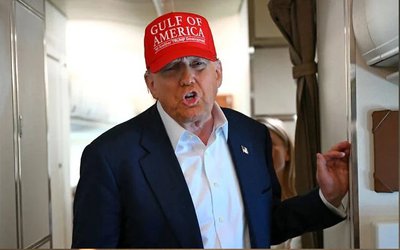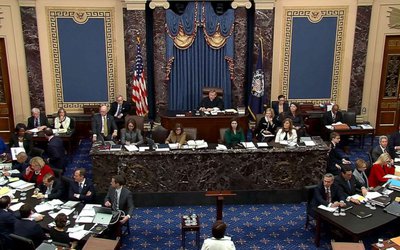More on International






During his visit to Delhi in the last week of July, British Prime Minister David Cameron stressed on ‘special partnership’ with the emerging regional power. The huge business delegation he was heading clearly underlined the importance new British coalition government attached to India. While watching the high profile visit of Mr Cameron to the sub-continent, many in Nepal wondered if he would ever visit Kathmandu—to set a history of its kind.
On 13 July this year, Major James Joshua Bowman, Lieutenant Neal Turkington and Corporal Arjun Purja Pun from 1st Battalion The Royal Gurkha Rifles were killed in Afghanistan. The soldiers, serving as part of Combined Force Nahr-e Saraj (South), were killed in a suspected premeditated attack by a member of the Afghan National Army.
Secretary of State for Defence, Dr Liam Fox, said: "The despicable and treacherous act which has taken the lives of these three brave men will not dent the resolve of the colleagues they leave behind. "I extend my deepest condolences to the families and loved ones of the servicemen killed in this atrocious attack, their sacrifice will not be forgotten," he said.
Parents of Neal Turkington sent an invitation to the Nepali embassy in London to attend the funeral rites of their son being organised in the UK. “We were really moved to get the invitation,” says Dr Suresh Chandra Chalise, newly appointed Nepali ambassador to the UK. “British soldiers and Gurkhas are fighting side by side in Afghanistan to make the world a safer place. It is indicative of the emotional bond between our two communities, which is unique.”
High-Level Visits
Foreign relations experts say high level visits are also instrumental in strengthening bilateral relations and boosting mutual cooperation. They also bolster mutual understanding and build mutual trust “Nepal needs British support for development and Britain needs Nepali nationals to work in its armed forces, in the midst of growing challenges at both ends. High-level visits from Great Britain will be more beneficial to both countries than the other way round in terms of getting media coverage to raise awareness, earning appreciation of peoples from both countries, and reinforcing Nepal-UK relations,” said Murari Sharma, former Foreign Secretary, who has also served as Nepali envoy to the UK and United Nations.
Sharma’s successor, Dr Suresh Chandra Chalise, is already lobbying with British leaders and parliamentarians to ensure that Prime Minister Cameron visits Nepal sooner than later. “ I have met more than a dozen British MPs over the last few months and all of them were surprised to learn that no British Prime Minister visited Nepal despite two centuries old relations between them.
“The visit of the British premier shall boost Nepal’s democratic changes, and satisfy the long standing desire of the Nepalese in general and Nepalese Gurkhas in particular,” said Dr Chalise. “It would also help deepening bilateral relations by updating the existing understandings,” he added.
Nepal and Britain established relations in 1816 after the Anglo-Nepal war in which Nepal was defeated and was forced to sign the humiliating Sugauli treaty. But the way Nepalis resisted the advancing British army and fought valiantly, British were impressed and decided to recruit them in their army. At first they started recruiting Gurkhas in the Anglo-Indian army and later in the British army after the independence of India. Gurkhas have ever since fighting for the British in every major theatre of war including World War I and II.
Approximately one hundred thousand Gurkhas took part and many of them died during these wars. A total of 13 Gurkhas have been awarded Victoria Cross by the British government in recognition of their bravery. Twice a year Commonwealth High Commissioners and the Nepalese ambassador lay wreath on the memorial monument of the heroes at the Constitutional Hill in London.
Queen Elizabeth II visited Nepal twice-- in 1961 and 1986, along with her husband Prince Phillip. Late King Mahendra, late King Birendra and a number of Nepali prime ministers have visited London on officials visits. Dr Chalise said while presenting his credentials to the British monarch in May this year, he spoke about centuries old Nepal-UK relations and highlighted the role played by Gurkhas in bringing the two countries together. Responding to him, the Queen said, ” Do you know ambassador, when my grandson was in Afghanistan, he was with the Gurkhas. And, there are two Gurkhas in my Palace.”
Development Assistance
Since 1950s, UK remains a major development partner of Nepal. The 50-km long Dharan-Dhankuta highway constructed with the British assistance serves as a major transport route in eastern Nepal. UK has now become the single largest bilateral donor to Nepal (by replacing Japan). The British government provided £110 million of aid for Nepal in 2007/8. Department for International Development (DfID) announced a three year package of support of £172 million as part of its Country Action Plan for Nepal announced in March 2009.
Some 28,000 British tourists visit Nepal every year, which is expected to go up as Nepal is observing the Nepal Tourism Year 2011. British businessmen are looking forward to invest in hydropower, tourism and services sector in Nepal, according to officials.
“Given the long historical relations between the two countries, UK is better placed than many other countries in Nepal to assist the country in the development of the economy. The UK assistance could be better spent on harnessing the natural resources of Nepal, promoting tourism and building infrastructure relating projects,” said Prof. Surya P Subedi, OBE, who teaches international law at the University of Leeds.
“UK should see Nepal not only as a strategically placed country but also as a country which has a great deal to offer to the world and to the people of the UK. Nepal is rather unique in so many respects, including its Himalayan ecology and rich biodiversity. Politically too, Nepal is well placed to serve as a neutral country to mediate some of the thorny problems in the region, including political ones,” said Prof. Subedi. “By working with Nepal the UK has an opportunity to bring about lasting peace in the region and make a contribution to the promotion of international peace, democracy and human rights globally.”
Looking Into Future
A member of the UN Security Council, the UK continues to wield considerable influence on events affecting the world at large. In addition, the British monarch is the head of Commonwealth as well as the head of state of a number of countries including Australia and Canada.
“Britain has traditionally seen Nepal as an important ally in South Asia, sustained by the Gurkha connection. It is this background which offers a strong basis for Kathmandu to maintain ---and promote---close relations with London,” said Dhrubahari Adhikari, a senior journalist who writes on foreign affairs.
Adhikari, who was working with the state-run Gorkhapatra daily, during Queen Elizabeth II's second visit to Nepal in the mid-1980s, recalls how then King Birendra worked hard to make the visit a success. Sir Geoffrey Howe, deputy prime minister, had accompanied the visiting British monarch. “In early 1980s, when Prince Charles was in Nepal a big crowd of journalists followed him----primarily to know how he communicated with Lady Diana Spencer from his trekking camp beyond Pokhara. They were yet to be formally engaged,” said Adhikari.
“Our mission is doing its best to make that happen,” said ambassador Chalise.





